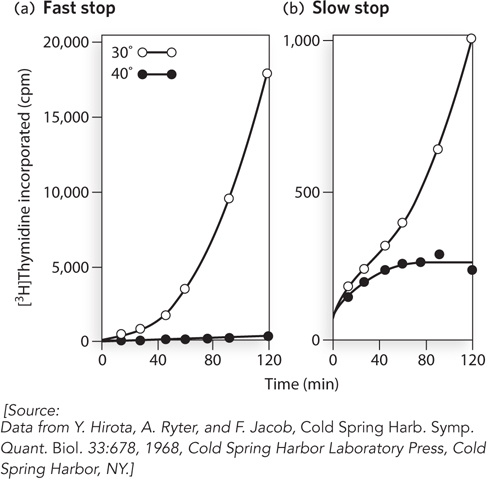
Two types of replication genes revealed through genetic studies. Temperature- t- w-